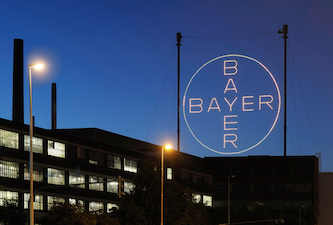German drug company Bayer said it will pay up to $600 million for full control of cell therapy developer BlueRock Therapeutics.
The move increases Bayer’s investment in a promising new medical area as it seeks to revive its drug development pipeline.
BlueRock Therapeutics is a privately held US-headquartered biotechnology company focused on developing engineered cell therapies in the fields of neurology, cardiology and immunology, using a proprietary induced pluripotent stem cell (iPSC) platform.
Bayer said: “Following a 2016 joint venture with Versant Ventures to establish BlueRock Therapeutics, Bayer will acquire the remaining stake for approximately USD 240 million in cash to be paid upfront at closing and an additional USD 360 million payable upon achievement of pre-defined development milestones.
“With Bayer currently holding 40.8 percent stake, the investment corresponds to a total company value of BlueRock Therapeutics of approximately USD 1 billion.
“The closing of the transaction is expected during the third quarter of 2019.”
Stefan Oelrich, member of the board of management, Bayer AG and president Pharmaceuticals Division said: “This acquisition marks a major milestone on our path towards a leading position in cell therapy.
“In line with our strategy to ramp up our investments in technologies with breakthrough innovation potential, we have decided to build our cell therapy pipeline based on BlueRock Therapeutics’ industry-leading iPSC platform.
“Ultimately, we are joining forces to deliver new treatment options for medical needs that are still unmet today.”
BlueRock Therapeutics CEO Emile Nuwaysir said: “We are extremely excited to be part of the world-class Bayer organization.
“We have built a premier cell therapy platform at BlueRock Therapeutics, with industry-leading R&D, process development and manufacturing capabilities.
“With the expertise and support of Bayer, we will be even better positioned to pursue the discovery, development and commercialization of revolutionary new cell therapies for patients suffering from diseases previously thought of as intractable.”
